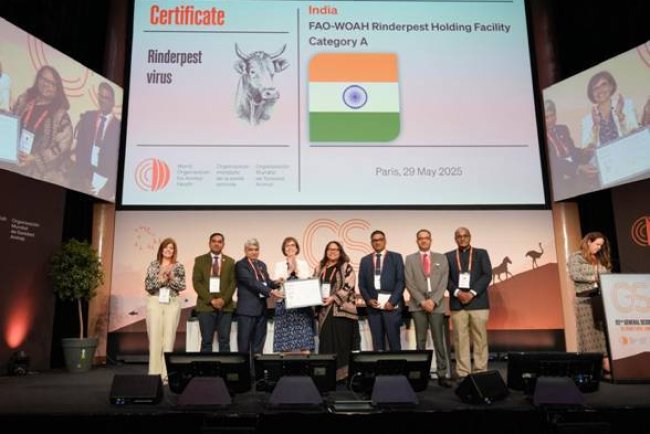Indian Chemical Sector To Hit $300 Bn By 2030, $1 Tn by 2040: Report
Most of the materials which we manufacture can be recycled in some or the other way

We need to transform into a circular economy, and cannot rely anymore on the take, make and dispose model. It is imperative for us to adopt, and we no longer have any other option as of now,” said Ved Prakash Mishra, Joint Secretary, Ministry of Environment, Forest & Climate Change, Govt of India.
He emphasised that transition to circular economy is not only an environmental necessity, but it also offers economic opportunities.
Addressing the ‘Global Symposium on Resource Efficiency & Circular Economy’ organised by ‘Resource Efficiency and Circular Economy Industry Coalition’ (RECEIC), jointly with FICCI and MoEF&CC, Mishra further expressed hope that the recycling industry is likely to reach $ 3 trillion in next 20 years.
Most of the materials which we manufacture can be recycled in some or the other way. There are a few which cannot be recycled but can be utilized in other ways including plastics which cannot be recycled but can be used for energy recovery and fuel.
Mishra stated that over the past few years, government has launched some EPR policies in select sectors including plastic, e-waste, batteries, and used oil and some others are in pipeline.
Manish Sharma, Chair, RECEIC Steering Committee & Chairman, Panasonic Life Solutions, India and South Asia said that the responsibility to enable resource efficiencies and circular economy are very important. “Our belief at RECEIC is that we are not looking at topics like enabling energy transition in the most effective manner, but we are wanting to drive energy security through energy transition by enabling actions which are required today,” he added.
Janardhanan Ramanujalu, Vice President, Indian region, SABIC said, “A good value chain integration offers opportunities which are beyond the obvious. We need to extend our perspective beyond individual factories, manufacturing plants, buildings, and think about how we can interconnect and integrate for resource efficiency.”
Sashidhar Vempala, Chief Sustainability Officer, Hindustan Unilever said that regenerative growth in terms of materials in current times is not just a policy decision. It is important for all of us to look at it for the generations to come.
What's Your Reaction?

















